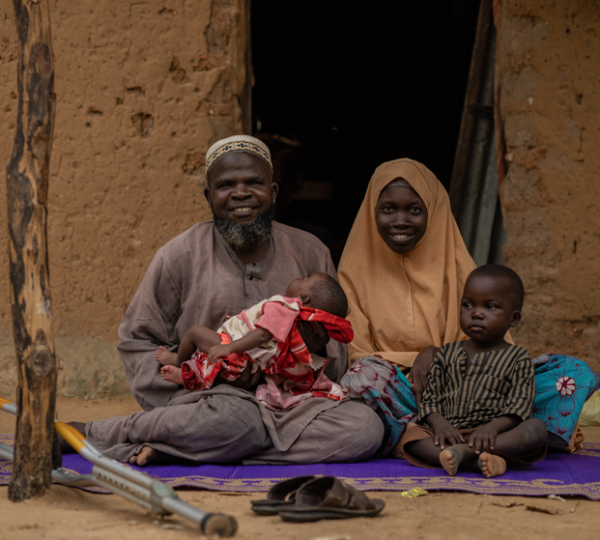World Neglected Tropical Disease Day: It is time to Act Now, Act Together, and Invest in NTDs
By Elizabeth Adeyemo
What do Leprosy, Sleeping Sickness, River Blindness, Elephantiasis, and Trachoma have in common, other than being infectious diseases and their debilitating effects? They, along with 15 other diseases, are classified as Neglected Tropical Diseases (NTDs), according to the World Health Organisation (WHO).
Neglected Tropical Diseases are so-called because they have received less attention globally compared to many other prevalent diseases, especially when it comes to treatments and funding. They have been relegated to the backstage by other “popular” diseases such as Malaria and HIV/AIDs.
Neglected Tropical Diseases are a range of communicable diseases that affect more than 1.7 billion people globally. About 35% of this burden is in Africa, with Nigeria having the most cases of neglected tropical diseases.
What causes NTDs?
NTDs are caused by bacteria, viruses, and parasites, not witchcraft, curses or punishments from God, as most people think. These diseases are responsible for pain, suffering, permanent disabilities, and in the worst-case scenario, death.
NTDs have been intimately linked to poverty, and that’s because they are common in the poorest places in the world, particularly where people lack water and proper sanitary conditions. In Nigeria, 60 million people lack access to basic drinking water, and 80 million are without access to improved sanitation facilities.
What are the types of Neglected Tropical Diseases?
There are many types of NTDs, and they include Ascariasis, Buruli ulcer, Chagas disease, Dengue, Hookworm, Human African Trypanosomiasis (sleeping sickness), Leprosy, Onchocerciasis (river blindness), and Trachoma etc. Many of these diseases can be transmitted in different ways. It could be by infected insects (Chagas disease, Onchocerciasis, Dengue fever, etc.), from consuming food and water containing parasites (Guinea worm disease, Schistosomiasis, etc.), through contact with respiratory droplets (Leprosy), personal contact or sharing of materials harbouring the bacteria (Trachoma).
NTDs’ symptoms vary from disease to disease, such as blindness or deformed legs. Some common symptoms are rash, sores, fever, aches, or swelling of the lymph nodes at the site of infection. They are not usually fatal, but they can lead to many fatal conditions, including death, if left untreated.
What are the impacts of NTDs?
Neglected Tropical Diseases place an overwhelming burden on countries and people. They can affect a country’s economic growth by impeding productivity. They can keep children out of schools and push individuals and households into poverty. Infection with NTDs and other prevalent diseases like HIV/AIDs can have lethal consequences. Additionally, helminth infestation can weaken the immune system, thus increasing the risk of contracting many prevalent diseases. Some NTDs, such as leprosy, are associated with social stigmatization.
What can be done?
There is so much good and progress that can come if neglected tropical diseases are brought to the limelight and if people and countries can take action to eliminate these diseases.
Not every NTD requires a vaccine. Sometimes good hygiene and proper sanitation practices do the trick for preventing many NTDs, such as trachoma and schistosomiasis. Community awareness and education, especially for at-risk populations, is very vital in preventing these diseases so that people can put in some measures to reduce their risk. For example, using treated mosquito nets or eliminating breeding zones of mosquitoes lowers the risk of diseases carried by these insects.
Many of these diseases are treatable. Some of these disabling diseases take as low as 50 cents (about ₦30 today) to treat. But the drugs don’t usually get to those regions most in need. Efforts need to be made to ensure that these regions have stronger health systems and that these drugs are delivered where needed.
SFH’s response to Neglected Tropical Diseases
At the Society for Family Health (SFH), we care about NTDs because they put more than 100 million Nigerians at risk for at least one of the diseases. We have implemented several NTD and WASH programmes, including Accelerating Nutrition Results in Nigeria (ANRiN), Global Fund Malaria and Health Resilience of North-East Nigeria (HeRoN) to help support the prevention, treatment, and diagnosis of neglected tropical diseases.
Distributing nets is an effective strategy for preventing the transmission of Neglected Tropical Diseases that are spread by insect vectors, particularly mosquitoes and flies. SFH is currently distributing Insecticide-Treated Nets (ITNs), through the Global Fund Malaria Project, to families across Nigeria to protect them from diseases such as malaria, lymphatic filariasis, leishmaniasis and trypanosomiasis. In the last 8 years, SFH has distributed over 59.7 million ITNs to communities in Nigeria.
Furthermore, through the ANRiN project, SFH delivers albendazole, an antiparasitic medication that can be used to treat or prevent soil-transmitted helminth infections (STHs), lymphatic filariasis, onchocerciasis, and echinococcosis, to children between 1-5 years in Kaduna state. As of December 2022, SFH provided 523,514 deworming services to 256,114 Children under-5 years of age.
Additionally, SFH conducted research to generate evidence on the knowledge, attitude and perception of members of a rural community in Nigeria on schistosomiasis prevention and control. Insights drawn from this study were used to inform behaviour change programming in the community. This intervention resulted in increased knowledge on the control and eradication of schistosomiasis, as well as positive actions by the government, including scheduled mass schistosomiasis treatment campaigns.
On this World Neglected Tropical Diseases Day, SFH commemorates the significant progress made to eradicate NTDs and calls for investments in research and interventions for NTDs to ensure the NTD-free world we all want. Let’s #ActNow #ActTogether and #InvestinNeglectedTropicalDiseases
With your help, we can provide clean water where and when it is most needed and ensure healthier lives for all. To get involved, click here.
For more information about the work we do, write info@sfhnigeria.org.




